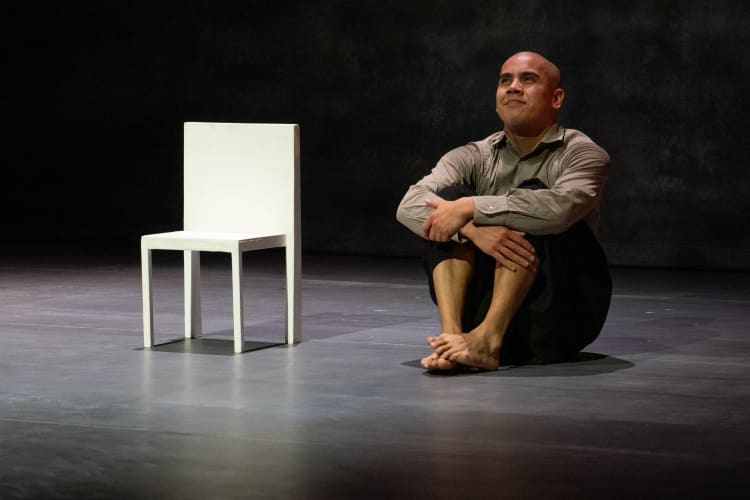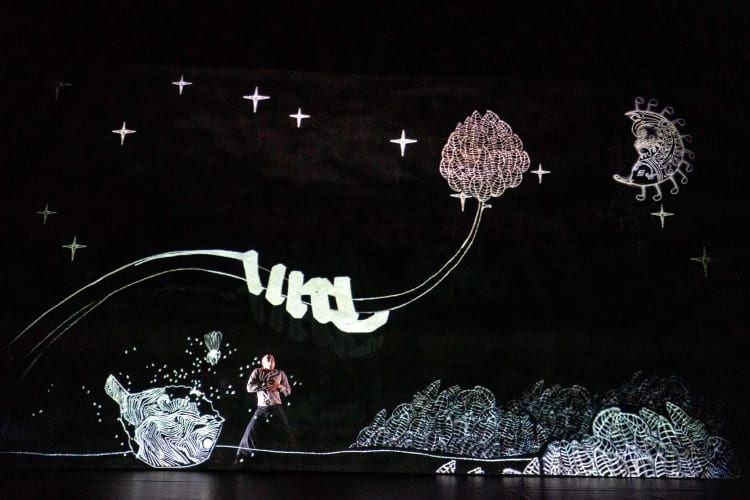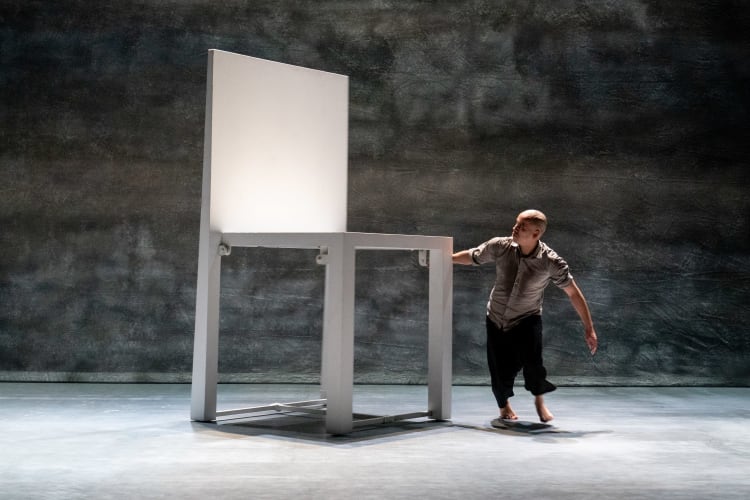In the first instance, Akram (played by Nico Ricchini) is an adult man having a conversation on his mobile with a twelve-year-old customer service agent in Bangladesh. As the conversation further unfolds, we learn that Akram is also a naughty boy—one that can’t sit still and is constantly on the move.
Using the concept of a juvenile customer service agent in Akram’s father’s homeland as a link to the emotional journey of his up-bringing is a cute technique that old and young audience members can get behind.
Razor-clean communication continues as Ricchini punctuates the gestures of his phone conversation with the gusto of choreography. Sound moves us through this show from the start, carrying the weight of a second narrator. First, this is from the child’s phone-voice; secondly, Akram’s adult voice continues the thread as he is reminded of stories told to him by his mother.
The audio of his parents' domestic bickering and his father chastising him to keep still leads to the offer of a Bengali folk story—enter the world of Chotto Desh: ‘little homeland’. We are gently guided away from Akram’s avoidance of the little chair he so dislikes to the world of the forest goddess.
Akram’s mother’s dulcet voice narrates as we observe him travel behind a translucent animation screen, which sees him climb into honeycombs, combat bees and find footholds in the interior of a great tree. He even casts away on a leaf-like boat.
The aesthetic is illustrative, penned in a digital rendering of lines, swirls and dots, and is truly reminiscent of children’s picture books. While the fable continues, it is not unreasonable to assume that the primary aged children in the audience are grasping the moral of the story—the little boy has ventured into the forest against his parents' wishes and has been stung because of it. Their attentive faces are glued to the action throughout.
On returning to the setting of the family home, Akram brings onto stage a larger version of the chair that constrained him as a toddler. The struggle that ensues between the parental audio and Akram’s rebellious manoeuvring over, under and around the chair draws parallels between the story and Akram's teenage battle with his parents…
Inevitably, we watch Akram succeed in using the chair and space in the way he desires, declaring what he is doing to his Mum and Dad; he is dancing... he is doing it, for real. You would have a heart of steel to resist this robust sentiment that many will relate to—on pursuing his ambition, he has triumphed in the face of tensions between culture and individuality.
While the children in the audience will have recognised the familiar fight to do what one wants rather than what others would have us do, the rest may prove to be an audio-visual memory, ripe for discovery in later life.
Chotto Desh is a sweet show worthy of the honey its protagonist strives for, and serves as an elegant visual memoir of its co-creator, Akram Khan.


